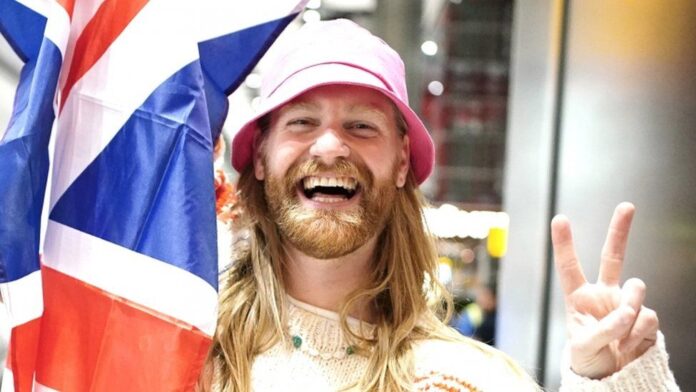
The Eurovision Song Contest will take place in the UK next year after show organisers decided it could not be held in the winning country, Ukraine.
The ongoing war following February’s Russian invasion prompted the European Broadcasting Union (EBU) to look for an alternative host.
The UK’s Sam Ryder came second this year, which prompted the EBU to open talks with the BBC last month.
Several UK cities have already expressed interest in hosting.
The UK has a number of places with suitable arenas, accommodation and international transport links, with London, Sheffield and Manchester already confirming that they will put in an official bid.
Leeds, Liverpool, Newcastle, Birmingham, Aberdeen, London, Brighton, Bristol, Belfast and Cardiff could throw their hats into the ring.
“We are grateful to our BBC partners for showing solidarity with us,” said Mykola Chernotytskyi, head of Ukraine’s public broadcaster, UA:PBC.
The bidding process to decide which city will host will begin this week.
The BBC and the The European Broadcasting Union (EBU) will consider all official approaches and will publish the longlist later this summer.
Hosting Eurovision can be an expensive business. Azerbaijan reportedly spent £48 million on hosting the event in 2012.
A BBC spokesperson said: “The Eurovision Song Contest is a co-production of the host broadcaster and participating members of the European Broadcasting Union (EBU).”There are a number of funding options to be explored that will contribute towards delivering a fantastic event and great value for licence fee payers.”
Tickets usually go on sale a few months before the contest, once the specific venue is chosen.
The date for the contest’s Grand Final hasn’t been announced yet but it usually happens in May.
Ukraine will automatically qualify for the Grand Final, as is usual for the winner, along with the so-called Big Five, which includes the UK, France, Germany, Italy and Spain.
They each go straight through to the final because of their financial contributions to the event.
UA: PBC will work with the BBC to develop Ukrainian elements of the show.
Mr Chernotytskyi added that although the contest will not be held there, it will be “in support of Ukraine”.
“I am confident that together we will be able to add Ukrainian spirit to this event and once again unite the whole of Europe around our common values of peace, support, celebrating diversity and talent.”
Reflecting Ukrainian creativity
Prime Minister Boris Johnson and Culture Secretary Nadine Dorries both welcomed the news, while acknowledging the unwanted circumstances.
“Following a request from the European Broadcasting Union and the Ukrainian authorities, I’m delighted that the BBC has agreed to step in and host next year’s contest,” Ms Dorries said.
“I’m just sorry that due to Russia’s continued acts of bloodshed it has not been possible to host the event in Ukraine, where it should be.”
She added that the UK will “ensure it reflects Ukraine’s recent Eurovision victory and Ukrainian creativity”.
Mr Johnson tweeted that the UK would put on a “fantastic contest on behalf of our Ukrainian friends”, and that last week he and Ukraine’s President Zelensky had agreed that the contest “must celebrate the country and people of Ukraine”
BBC director general Tim Davie added: “It is a matter of great regret that our colleagues and friends in Ukraine are not able to host the 2023 Eurovision Song Contest.
“Being asked to host the largest and most complex music competition in the world is a great privilege.”
He said the broadcaster would make the event “a true reflection of Ukrainian culture alongside showcasing the diversity of British music and creativity”.
Martin Österdahl, who oversees the Eurovision Song Contest, said: “We’re exceptionally grateful that the BBC has accepted to stage the Eurovision Song Contest in the UK in 2023.”
The EBU have said the host venue should accommodate about 10,000 spectators, be within easy reach of an international airport and have enough hotel accommodation for at least 2,000 delegates, journalists and spectators.
Ukraine’s entrant Kalush Orchestra won this year’s contest in May in a symbolic show of public support, while Sam Ryder came second for the UK, the country’s best result since 1998.










